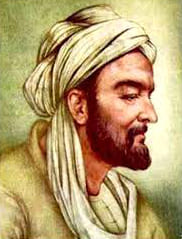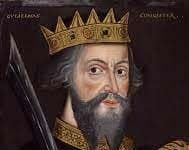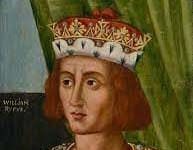Ibn Khaldun was a famous Arabian historian, philosopher, economist, and sociologist who lived from 1332 to 1406. He was born in Tunis, North Africa and is considered one of the greatest minds in Islamic history.
Ibn Khaldun: Detailed Consideration
Here you will learn about Ibn Khaldun: his brief biography, comprehensive biography, reviews of his works and facts about his life.
Ibn Khaldun: Brief Biography
Ibn Khaldun was a famous Arabian historian, philosopher, economist, and sociologist who lived from 1332 to 1406. He was born in Tunis, North Africa and is considered one of the greatest minds in Islamic history. He made significant contributions in many fields and is considered as one of the founding fathers of the modern social sciences.
Early Life and Education
Ibn Khaldun was born into a family of influential scholars and politicians. He was educated in Islamic law, theology, mathematics, and astronomy. He also studied under various scholars in North Africa and the Middle East.
Career
Ibn Khaldun’s professional career was marked by both success and setbacks. He served as a statesman and diplomat in various North African cities and was appointed as the Chief Justice of the Maghrib by the sultan of Tunis. However, he was also exiled several times and had to flee from one place to another due to political turmoil and court intrigues.
The Muqaddimah
Ibn Khaldun is best known for his work, “The Muqaddimah” (The Introduction), which is considered his magnum opus. It is a comprehensive treatise on history, philosophy, and the social sciences that was written as an introduction to his Universal History. In The Muqaddimah, Ibn Khaldun advanced several innovative ideas that were ahead of his time. He provided a new approach to the study of history, emphasizing the importance of considering social, economic, and cultural factors in the development of civilizations. He also discussed the concept of asabiyyah, which he defined as social solidarity or group feeling, and its role in the rise and fall of civilizations.
Economic Thought
Ibn Khaldun was also a pioneer in the field of economics. He made significant contributions to the study of economics and provided a unique perspective on the subject. He emphasized the importance of the division of labor and the role of money in the economy. He also discussed the principles of supply and demand and the effects of inflation on the economy.
Sociological Thought
Ibn Khaldun was also a sociologist, and his ideas on the subject had a lasting impact on the field. He believed that human society was composed of various groups and that the relationships between these groups were essential for the development and stability of society. He also discussed the concept of social change, and how it was driven by economic, political, and cultural factors.
Legacy
Ibn Khaldun’s legacy continues to this day. He is considered one of the most important figures in the history of the social sciences and his ideas continue to be studied and discussed. The Muqaddimah is still widely read and is considered a classic in the field of history and social sciences. In recognition of his contributions, UNESCO declared the year 2014 as the “Ibn Khaldun Year” to commemorate the 700th anniversary of his birth.
In conclusion, Ibn Khaldun was a remarkable scholar who made significant contributions to several fields, including history, philosophy, economics, and sociology. He was ahead of his time and his ideas continue to influence the study of the social sciences to this day. 0 0 0.
Ibn Khaldun: Comprehensive Biography
Introduction
Ibn Khaldun, born as Abū Zayd ʿAbd al-Raḥmān ibn Muḥammad ibn Khaldūn in 1332 in Tunis, remains one of the most influential figures in the fields of historiography, sociology, economics, and philosophy. His work transcends the confines of traditional scholarship, as his intellectual legacy continues to shape modern thought. Known primarily for his magnum opus, ‘Muqaddimah’ (Introduction), Ibn Khaldun is often celebrated as the father of sociology and the precursor to modern historiography.
Early Life and Education
Born into an aristocratic family of Andalusian descent, Ibn Khaldun was exposed to a rich cultural and intellectual heritage from an early age. His family fled Spain during the Christian Reconquista and settled in North Africa. Surrounded by scholars, he received a traditional Islamic education, which included studies in the Quran, hadith, jurisprudence, and Arabic literature. By the age of 20, Ibn Khaldun was already deeply immersed in the world of political theory and administrative governance.
Political Career and Turbulence
Ibn Khaldun’s life was marked by political instability and exile. His government career spanned several North African states, including the courts of Tunis, Fez, and Granada. Despite his brilliance, political intrigue often put him at odds with ruling elites, forcing him into a life of temporary alliances and betrayals. These personal experiences of political upheaval and instability would later become central themes in his theoretical work on the rise and fall of civilizations.
Muqaddimah: His Magnum Opus
During one of his exiles, Ibn Khaldun began writing his masterpiece, ‘Muqaddimah’, originally intended as an introduction to his larger work, ‘Kitāb al-ʿIbar’ (Book of Lessons). The ‘Muqaddimah’ went beyond the conventions of historical writing. Ibn Khaldun analyzed the underlying forces behind historical events, using a rational and scientific approach to examine economics, social dynamics, and political change. He introduced the concept of ‘asabiyyah’ (social cohesion or group solidarity), arguing that civilizations rise and fall based on their social unity and collective strength.
Sociological Contributions
Ibn Khaldun’s insights into sociology were groundbreaking. He viewed human society as an evolving organism, subject to natural laws, much like the rise and decline of dynasties. He theorized that desert nomads, with their strong group solidarity, inevitably overthrow urbanized, sedentary civilizations, only to become later corrupted by the luxuries of city life themselves. This cyclical theory of history was revolutionary, marking him as a visionary far ahead of his time.
Later Years and Teaching
In the later stages of his life, Ibn Khaldun spent time as a teacher and scholar in Cairo. He lectured at Al-Azhar University and took on roles in the Egyptian judiciary, gaining recognition as one of the leading intellectuals of his age. Despite his growing fame, he continued to be involved in political life, occasionally called upon as a diplomat or advisor.
One of the most extraordinary episodes in his life occurred in 1401 when Ibn Khaldun met the fearsome Mongol conqueror Timur (Tamerlane) outside the walls of Damascus. This meeting was a unique interaction between two historical giants, offering Ibn Khaldun a rare firsthand insight into the psyche of a world conqueror.
Death and Legacy
Ibn Khaldun passed away in 1406 in Cairo, leaving behind a rich intellectual legacy that continues to influence scholars across disciplines. His cyclical theory of history, his understanding of social cohesion, and his multi-faceted analysis of civilization have positioned him as a pioneering figure in various academic fields, from history and sociology to economics and philosophy.
Conclusion
Ibn Khaldun’s life was a testament to the power of intellect amidst political turmoil. His works remain timeless, as his observations on human society and the nature of power resonate even in contemporary discourse. As the father of sociology and a visionary historian, Ibn Khaldun carved a unique place in history, influencing the intellectual landscape for generations to come. 0 0 0
Ibn Khaldun: Critical Reviews of His Works
Ibn Khaldun’s contributions have been widely debated and analyzed across centuries, both within Islamic scholarship and by modern historians, sociologists, and political theorists. Below are critical reviews of his most significant work, ‘Muqaddimah’, and his broader contributions:
Pioneering Sociological Thought
Positive Reviews: Scholars like Arnold J. Toynbee hailed ‘Muqaddimah’ as “the greatest work of its kind that has ever been created by any mind in any time or place.” Ibn Khaldun’s ability to interpret historical events through the lens of social dynamics was revolutionary, and his concept of *asabiyyah* (social cohesion) laid the groundwork for modern sociology.
Critical Perspective: Some sociologists argue that while Ibn Khaldun’s work was groundbreaking for its time, his cyclical theory of history may oversimplify the complexities of social and political change. His focus on the inevitable decay of civilizations, though insightful, tends to disregard the possibility of reform or adaptation.
Historiography and Philosophy of History
Positive Reviews: Ibn Khaldun is often credited with establishing historiography as a scientific discipline, applying rational and empirical methods to study the rise and fall of civilizations. His emphasis on causality, economy, and social forces in shaping history is seen as a precursor to later historical methodologies.
Critical Perspective: Some critics suggest that Ibn Khaldun’s emphasis on material and social conditions as driving historical forces overlooks the role of individuals and ideological factors. His deterministic approach has been critiqued as limiting the scope of human agency and innovation.
Economic Thought
Positive Reviews: Ibn Khaldun’s economic theories, particularly his analysis of labor, production, and taxation, were far ahead of their time. He understood that excessive taxation could cripple an economy, a concept later developed in modern economics.
Critical Perspective: While his economic insights were groundbreaking, some economists argue that Ibn Khaldun’s ideas were underdeveloped. His focus on cyclical rises and falls of economies didn’t fully explore the complexities of trade, currency, or international commerce, which were becoming more significant during his time.
Cyclical Theory of History
Positive Reviews: The cyclical theory of history, which posits that civilizations rise, grow, and fall in predictable patterns, has been one of Ibn Khaldun’s most enduring contributions. His observations about how nomadic societies become sedentary and then eventually decay have been supported by many historical examples.
Critical Perspective: Critics argue that his cyclical theory can be overly deterministic, leaving little room for the evolution or sustained development of civilizations beyond the rise-and-fall pattern. His theory does not account for long-term, sustained progress, as seen in some civilizations that adapted and endured beyond his cyclical framework.
Cultural and Religious Criticism
Positive Reviews: Ibn Khaldun’s objective approach to history, where he looked beyond religious or cultural biases and focused on socio-political forces, has been praised for its rationalism and secular analysis. He avoided glorifying the Islamic civilization or diminishing others, seeking universal principles in historical phenomena.
Critical Perspective: Some traditional scholars were uncomfortable with Ibn Khaldun’s approach, arguing that his secular tone in analyzing Muslim history downplayed the role of divine providence or religious factors in shaping history. In certain circles, his ideas were seen as too rationalistic or at odds with Islamic historiography of the time.
Style and Accessibility
Positive Reviews: Ibn Khaldun’s writing is praised for its clarity and precision, making his complex theories on history, society, and economy accessible to a broad audience. His ability to blend philosophical discourse with empirical observations created a balanced and engaging narrative.
Critical Perspective: Despite the brilliance of his ideas, some critics point out that the ‘Muqaddimah’ can be dense and difficult to navigate for modern readers. Its vast scope and frequent digressions make it challenging to maintain a focused understanding of his primary arguments without extensive study.
Ibn Khaldun’s works, especially ‘Muqaddimah’, continue to be celebrated as visionary contributions to multiple fields of study. While his theories have been critiqued for their limitations in scope or determinism, his ability to synthesize history, sociology, economics, and political thought remains a milestone in intellectual history. His insights into the cyclical nature of civilizations, the impact of social cohesion, and the forces driving historical change have made him a timeless figure, whose relevance persists across modern disciplines.
Ibn Khaldun: Facts in Brief
- Full Name: Abū Zayd ʿAbd al-Raḥmān ibn Muḥammad ibn Khaldūn
- Birth: May 27, 1332, in Tunis, North Africa
- Death: March 17, 1406, in Cairo, Egypt
- Famous For: Founding figure in historiography, sociology, economics, and philosophy
- Key Work: ‘Muqaddimah’ (The Introduction), a foundational text in social sciences
Concepts Introduced:
Asabiyyah (social cohesion or group solidarity)
Cyclical theory of history (rise and fall of civilizations)
Early theories of economics, labor, and political theory - Education: Traditional Islamic studies in the Quran, hadith, jurisprudence, Arabic literature
- Political Involvement: Held various government positions in North Africa and Spain, often involved in courtly intrigue and power struggles
- Exile: Spent several periods in exile due to political conflicts
- Meeting with Timur (Tamerlane): Met the Mongol conqueror outside Damascus in 1401
- Later Career: Scholar and judge in Cairo, lectured at Al-Azhar University
- Legacy: Considered the father of sociology and a pioneering thinker in the fields of economics and political science
N. B. This article originally belongs to the book, ‘Brief Biographies of Ancient Thinkers and Writers‘ by Menonim Menonimus.
Books of Biography by M. Menonimus:
- The World Writers-Brief Biographies
- Introduction to World Writers
- Introduction to World Personalities
- Love of Reputed Persons ..
Additional Searches:











